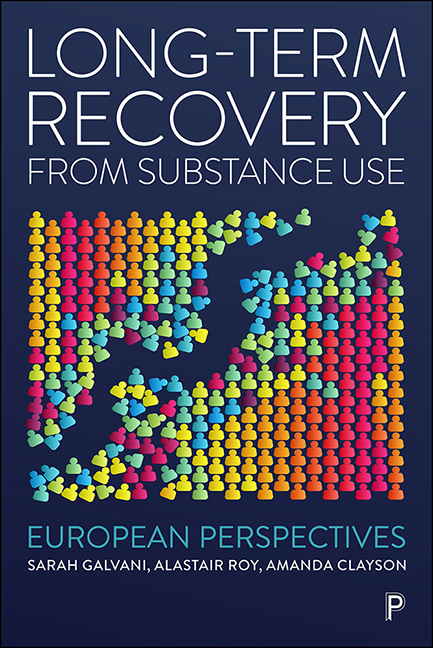2 - Is measuring long-term recovery desirable, necessary or even possible?
Published online by Cambridge University Press: 15 September 2022
Summary
Introduction
In everyday contexts, recovery is often thought of as something highly personal, involving changes in aspects of an individual's life not restricted to immediate behavioural or psychological presentations. In research on alcohol and other drug use, recovery has been framed in a range of ways, from studies that examine narrowly defined treatment outcomes to those which explore broader changes in lifestyle and social circumstance. This already complex picture is further complicated by questions about how recovery should be understood and/or evaluated at the level of policy, practice and lived experience, and whether the main concern of research studies should be evidencing causation, correlation, attribution or contribution. Given the vastness of such possibilities, this chapter critically examines whether measuring long-term recovery is possible or even desirable? It draws on the author's research and writing, with particular regard to recent shifts in methodological approaches to research on alcohol and other drug use. Specifically it considers moves towards greater inclusivity of people with lived experience as active partners in research, as well as the use of theory-driven approaches to programme and strategy evaluation. These applied considerations are interwound with key messages and other examples taken from a broad range of literature.
Establishing the starting points
Recovery-orientated alcohol and drug policy has become firmly established in the UK in the last ten years. A number of factors have influenced the mainstreaming of recovery, including influential reports (for example the Scottish Government's 2008 Road to Recovery) and the active promotion of recovery as a policy idea by key governmental organisations like the English National Treatment Agency for Substance Use. Wardle (2012, p 296) suggests that between 2005 and 2010, recovery moved from being an interest of a small number of disconnected activists to ‘in effect, the new orthodoxy’ for treatment and policy. There is some level of disagreement about the effects of the move to recovery. For example, some point to an increased level of peer-led involvement in service provision, whereas others argue that the independent social activism of the early recovery movement in the UK has largely been subsumed into processes which support agencybased treatment objectives (Roy and Buchannan, 2016). Also, many people have raised questions about how the key governmental objectives around recovery might be evidenced beyond long-established treatment outcome measures.
- Type
- Chapter
- Information
- Long-Term Recovery from Substance UseEuropean Perspectives, pp. 15 - 27Publisher: Bristol University PressPrint publication year: 2022

